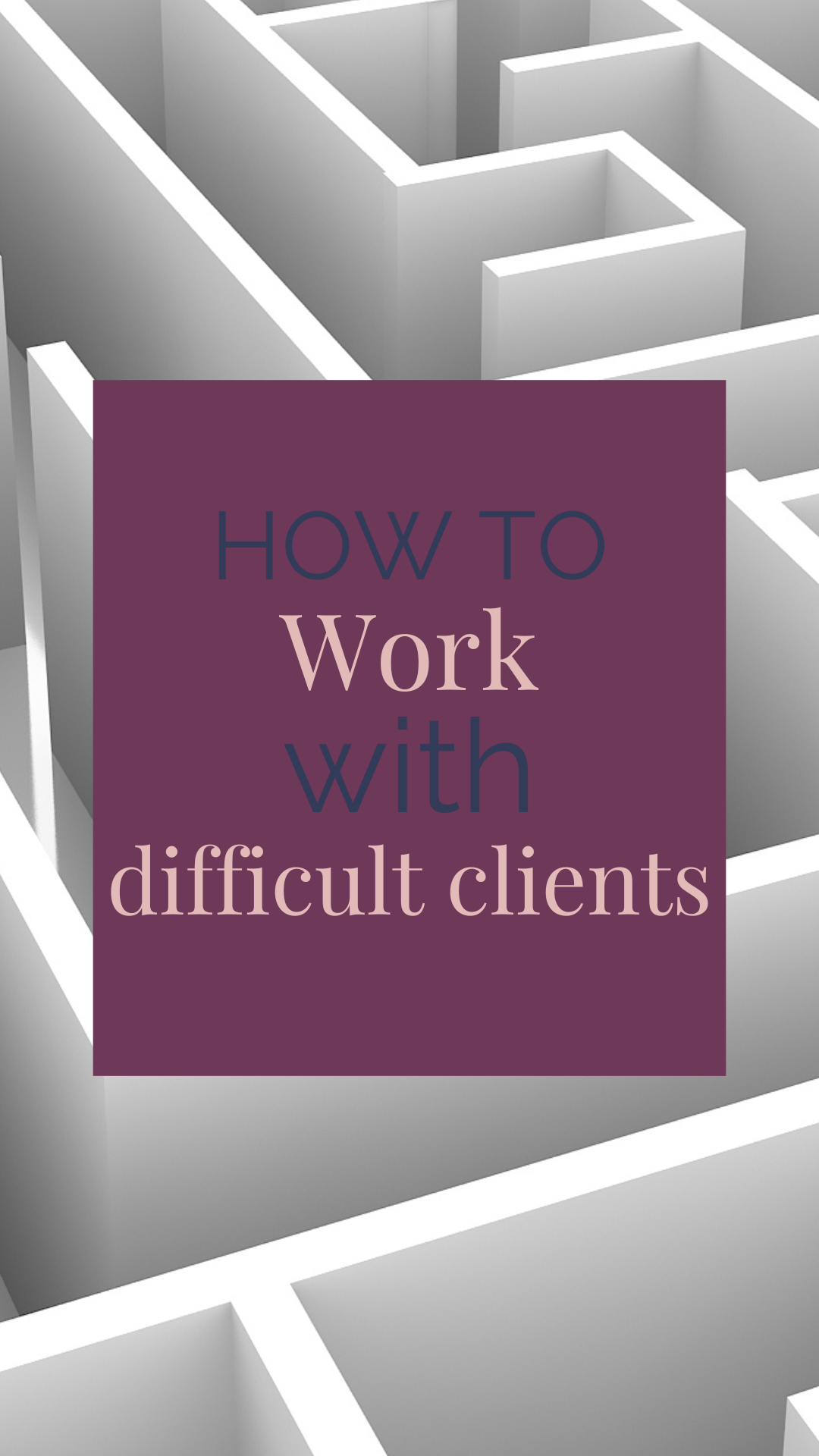How to work with difficult clients
If you're a wedding professional, chances are you've had at least one difficult client. A bride who doesn't like the flowers or a groom who wants photos taken at three different locations in under an hour. If managing these types of clients wasn't already hard enough, with the rise of social media it's become even more so: You now have to deal with clients who may have unrealistic expectations about what they can get for their money (or free) and aren't afraid to complain publicly if they don't get it.
Learn to deal with difficult clients
You probably have a story or two of a client who was difficult to work with. Difficult clients can be the worst part of being a wedding pro, but it's important to know how to deal with them if you want your business to succeed. It's easy to think that all difficult clients are bad people and should not be allowed in your business, but this isn't necessarily true. Some difficult clients are actually very good and will bring new opportunities into your life!
There are many different types of difficult clients:
The Couple Who Doesn't Communicate Well
The Bridezilla
The Unpredictable Client
Create a questionnaire
Create a questionnaire. It’s a good idea to create a questionnaire to ask all your clients, and make sure you include questions about their budget, timeline, and other important details that will help you better understand their needs. You should also have a place for them to write down their responses in case they don't have time or forget the answers before sending it back.
Send it with a cover letter. Once you've created your questionnaire and sent it out via email (or snail mail), be sure to include an introductory note with your wedding coordinator's name as well as yours if you both work together on weddings together!
Build strong boundaries
Establishing boundaries is a basic element of the client relationship. You should not feel bad about setting up boundaries, nor should you feel bad about enforcing them. It is important to know what your personal limits are, and it’s equally important for your clients to understand that you have a life outside of working with them.
It’s also helpful for your own sanity and peace of mind to acknowledge that there are times when saying “yes” may mean compromising something else in your life (like spending time with loved ones or taking care of yourself). If this happens, say no! Don't let yourself be drawn into feeling guilty over saying no; if it's not healthy or sustainable for your business or family relationships, then don't do it. One way around this dilemma is by asking someone else — like an assistant — to help out with tasks that take up too much time or energy on behalf of one particular client.
Set expectations up front
Set Expectations Up Front
Tell the client as much as possible about what you can do, and what you can’t do. Setting expectations up front prevents miscommunication, which is the primary cause of trouble with clients. If a client thinks they can get one thing from you but then finds out that it’s not possible, the relationship may soured before it even begins. It’s better for everyone if there are no surprises along the way.
Be Clear About Your Skills And Abilities
Being clear about your skills and abilities will help prevent a client from biting off more than they can chew or getting in over their head with complex projects (which is especially important when dealing with inexperienced individuals). This also gives them an idea of what to expect when working with you—which means less confusion on their part as well!
Be honest about your skills and abilities
Be honest about your skills and abilities.
If you don't know how to do something, say so. If you don't have the time to do something, say so. If you are not comfortable with a task, say so.
It's important for clients to understand what their wedding professional can and cannot do for them so that they can get exactly what they want from their big day.
Difficult clients can be the worst part of being a wedding professional, but there are ways to manage them
Difficult clients are a reality of the wedding industry.
How to deal with them: set boundaries and be honest about your skills and abilities
Being honest is key. If you don't feel like you can handle something, don't pretend that you can. The best way to manage difficult clients is by setting clear expectations from the beginning, being transparent about what they should expect from you as a professional, and maintaining those standards throughout the process
Dealing with difficult clients is part of the job as a wedding professional, but it doesn’t have to be the worst part. The key is to be honest about your skills and abilities, set clear expectations upfront and avoid over-committing yourself.
At The Social Attendant, we love all things social media and helping wedding professionals take their businesses to the next level. Lori was a wedding planner for 17 years and has been helping wedding creatives like you since 2020 with their social media management, consulting/coaching, and virtual assistant tasks . Let’s chat about how we can help!












